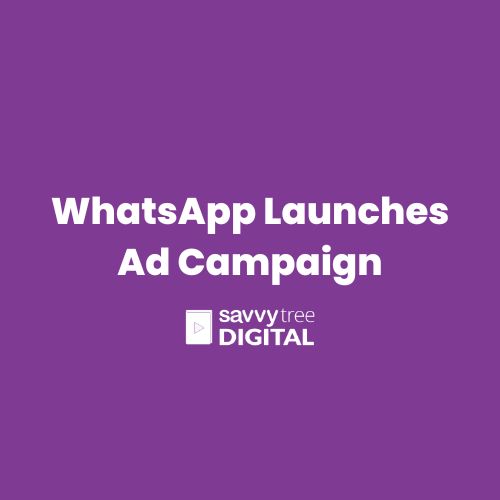In a significant strategic shift, WhatsApp has launched a new, multi-faceted ad campaign, signaling a more aggressive approach to marketing its features and solidifying its position in competitive markets, particularly the United States. While the messaging giant, owned by Meta, has long been a global communication powerhouse, this new push is a clear move to highlight its advanced functionalities beyond basic messaging and to capture a larger share of users who still rely on traditional SMS or other built-in messaging services.
The “It’s Time for WhatsApp” Campaign
The latest campaign, titled “It’s Time for WhatsApp,” features high-profile celebrities like Emmy-nominated actors Adam Scott and Adam Brody. The campaign’s core message is to showcase the superiority of WhatsApp’s group chat features over less-functional messaging alternatives. The ads use a clever, mirrored storyline to reveal the chaotic, frustrating nature of group chats on “just okay” platforms versus the seamless, organized experience offered by WhatsApp. This focus on group chat benefits—such as enhanced notifications, media sharing, and group calls—is a direct appeal to the millions of Americans who still default to SMS for group communication.
This campaign, running nationally across TV, digital, social media, and out-of-home from September through November, is not just about attracting new users. It’s also about re-educating existing users about the full potential of the app. As one of the most used apps in the world, with over 100 million U.S. users, WhatsApp’s challenge is to convert passive users into active, engaged ones who leverage its full suite of tools. The celebrity-led approach is a proven method for shifting habitual behaviors, and for a brand like WhatsApp, which has historically relied on word-of-mouth growth, this represents a major investment in shaping consumer perception.
A Broader Marketing and Business Strategy
The “It’s Time for WhatsApp” campaign is part of a larger, ongoing marketing strategy that has seen the company launch several campaigns globally. A few months ago, WhatsApp initiated a major global privacy campaign called “Not Even WhatsApp,” which aimed to reinforce its commitment to end-to-end encryption. The campaign, which rolled out in key markets like India, the U.S., and Brazil, sought to build user trust by emotionally and artistically illustrating that “no one, not even WhatsApp, can see or hear your personal messages.”
These ad campaigns are crucial for two main reasons:
- Combating Competition and Misinformation: In an increasingly crowded messaging app landscape, and in a world where data privacy concerns are at an all-time high, these campaigns serve to differentiate WhatsApp. The “Not Even WhatsApp” campaign directly addressed user fears and competitor claims by highlighting the app’s foundational privacy feature—end-to-end encryption. This is a direct response to a more privacy-conscious consumer base.
- Supporting the Business Model: While WhatsApp has long been known for being ad-free, its business model is evolving. The company’s focus is on providing robust business solutions, not on selling user data or placing ads in the chat feed itself. The “Ads That Click to WhatsApp” feature, which allows businesses to run ads on Facebook and Instagram that lead directly to a WhatsApp chat, is a key revenue driver. By increasing its user base and highlighting the app’s functional benefits, WhatsApp is making its platform more attractive and valuable for businesses. The new ad campaigns are designed to create a larger, more engaged user base that businesses can then connect with through these paid tools. This conversational commerce model, where businesses can engage with customers, offer support, and even process sales directly within the app, is central to Meta’s long-term monetization strategy for WhatsApp.
The Impact of a New Era of Advertising
For years, the phrase “WhatsApp ad campaign” was an oxymoron, given the company’s anti-advertising stance in its early days. But the recent campaigns, both focusing on privacy and functionality, mark a significant turning point. It’s a recognition that simply being the default messaging app is no longer enough. To maintain its dominance and to continue its growth in new markets like the U.S., WhatsApp must actively market its value proposition.
This new era of advertising from WhatsApp shows a maturing brand that understands the need to actively communicate its benefits. It’s a move away from organic, word-of-mouth growth and toward a more proactive, brand-building strategy. For consumers, this means more visibility and a clearer understanding of what makes the app unique. For businesses, it signals that WhatsApp is more than just a communication tool; it’s a powerful and expanding platform for customer engagement and commerce.

